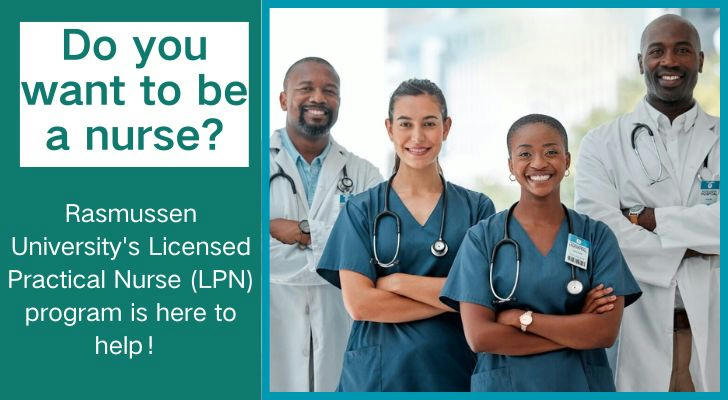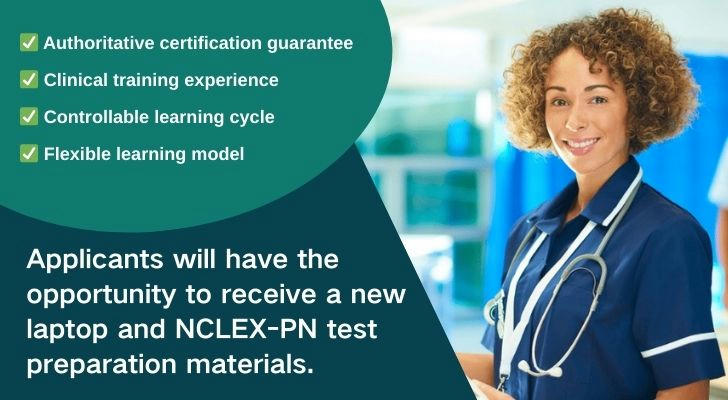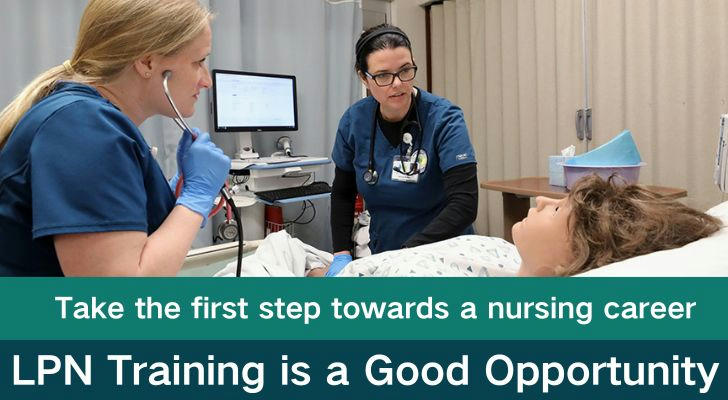How to Become an LPN Through Government funding and School-Supported Training Programs
🔥[Laptop Support]| Government funding | No Age Limit | Flexible Learning Options

Becoming a Licensed Practical Nurse (LPN) is one of the fastest and most affordable ways to enter the healthcare field. With flexible training options and strong government support, you can start a high-demand, stable career—without quitting your current job

Why Choose to Become an LPN?
Hospitals, clinics, long-term care facilities, and home healthcare agencies have a high demand for LPNs. As an LPN, you will:
- Short training time:Most programs are under 12 months
- Strong job demand:High need for nurses nationwide
- Affordable:Lower tuition than BSN or RN programs
- Career growth:Easily transition to RN or BSN later
No college degree is required—just a high school diploma or GED.
Perfect for career changers, CNAs, and those seeking job security
Job Outlook
According to the U.S. Bureau of Labor Statistics, LPN positions are growing steadily, with over 40,000 new jobs per year.
Median annual salary: $48,000–$60,000, depending on location and experience.
LPN positions offer long-term job stability and flexible schedules, with opportunities for career advancement.
How Government funding or School Support Makes Training Accessible
One key advantage of modern LPN training is increased government and school support, easing financial and logistical challenges.
Many programs offer:
✅ Flexible class schedules (evenings/weekends)
✅ Blended learning (online + in-person clinical practice)
✅ Academic support services (tutoring, mentoring, career guidance)
These programs allow working adults to complete their nursing education without leaving their jobs full-time.
Study While You Work — No Need to Quit Your Job
These programs are designed for working professionals:
Evening or weekend classes
Blended learning (complete some courses online)
Community clinical placements (sometimes at your workplace or nearby facility)
This setup lets students maintain income and life stability while preparing for their future career.
Additional Government funding
Programs may also provide:
--- Discounted textbooks and materials
--- Licensing or exam fee support --- Job fairs and networking opportunities
--- Guidance for scholarships or additional financial aid applications
Some government programs collaborate with healthcare employers, offering on-the-job training or priority hiring for graduates.
Eligibility for government funding or school support
Typical requirements for government or school-supported LPN programs:
- U.S. citizenship or legal work authorization
- High school diploma or GED
- Admission assessment or pre-screening test
- Meet income or employment-related criteria
Some programs prioritize applicants from:
- Underserved communities
- Veterans
- Those already working in entry-level healthcare positions
These courses are designed for adult learners, providing academic support, technical assistance, and flexible schedules.
🎯 Career Opportunities After Graduation
After completing the program and passing the NCLEX-PN licensure exam, you can work as a Licensed Practical Nurse (LPN).
Graduates typically work in:
-Long-term care facilities
-Rehabilitation centers
-Outpatient clinics
With experience, many LPNs pursue further education to become Registered Nurses (RN) or specialize in pediatrics, geriatric care, or other areas. Government workforce programs often support continued education for long-term career growth.
✅ How to Enroll in an LPN Program
1.Meet basic requirements (high school diploma or GED)
2.Pass entrance assessments (like TEAS or HESI, if required)
3.Complete FAFSA at studentaid.gov
4.Apply to LPN schools—prepare transcripts, letters, etc.
5.Submit scholarship applications to state or federal programs
🙋 Real Stories
“This program gave me the flexibility I needed. I worked part-time while studying and finished in less than two years. Now I work at a local clinic and finally have a career I love.”
— Tanya R., LPN, Georgia
“As a single dad, I needed something that allowed me to work without neglecting my child. Evening classes and government support made it possible.”
— Malik S., LPN, Michigan
🔥Ready to Start Your Nursing Journey?
LPN programs offer a practical, flexible path to a rewarding healthcare career. With generous aid and work-friendly formats, you can take your first step—without giving up your current income. With Government support + flexible training + financial assistance + career support, becoming an LPN is no longer an unattainable dream.
✅ No need to quit your job
✅ Government & employer financial support
✅ In-demand career with upward mobility

